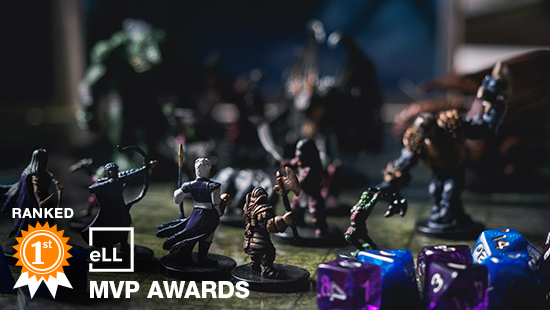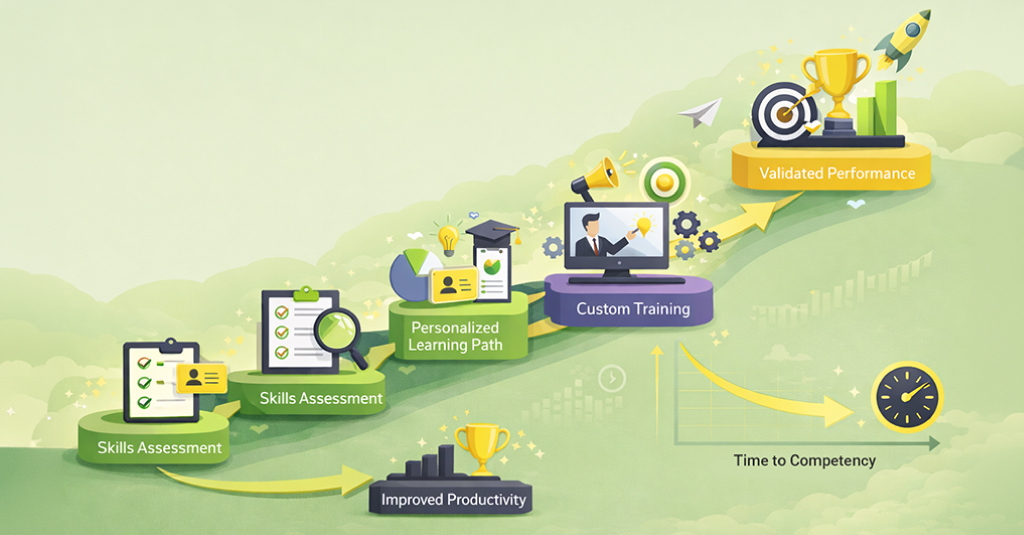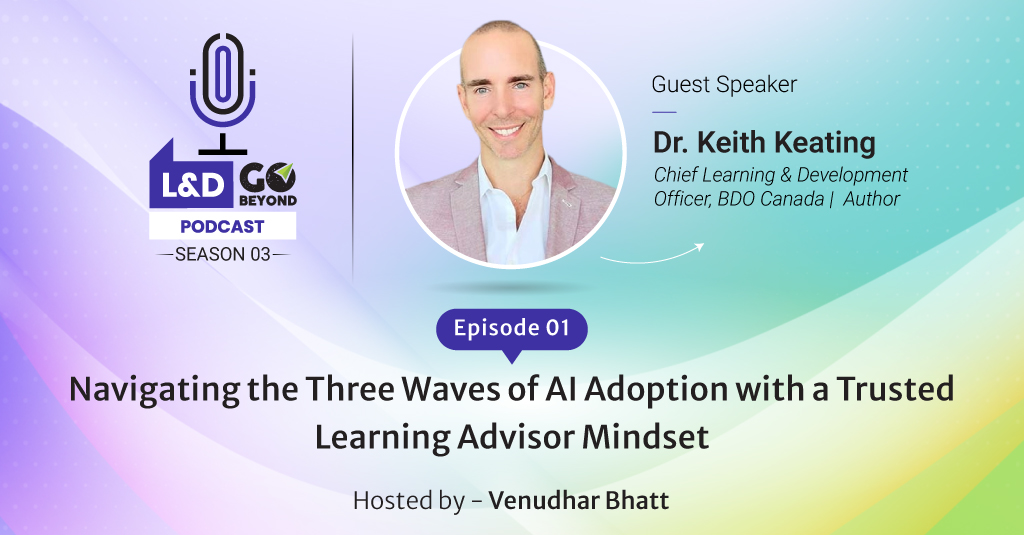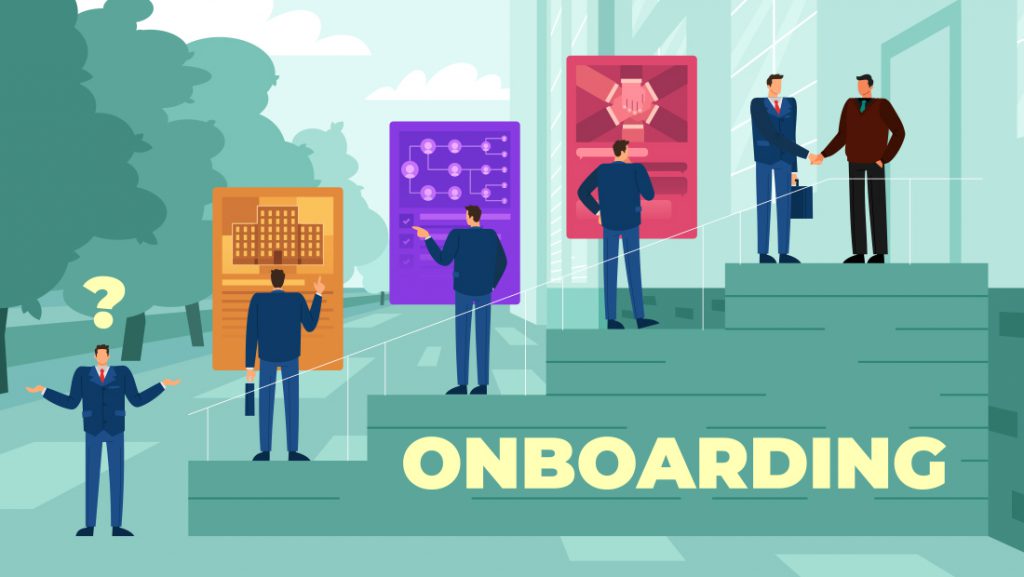So, Dungeons & Dragons (D&D) a fantasy role-playing tabletop game, that was invented in 1974 according to me and many others, is responsible for giving birth to many genres of gaming, and its features and ideas have inspired almost 40% of the games that we see. There wouldn’t be RPG (Role-Playing Games) or MMORPG’s (Massive Multiplayer Online Role-Playing Games) if there wasn’t a D&D.
I think LXP (Learning Experience Platforms) as a philosophy is that pivot for the learning industry that can provide ideas for the way people learn now and will do so going forward.
So here’s why I think D&D is a big deal. Mind you that since its launch in 1974, it’s still something that is actively played across various communities.
I wanted to explore the history of digital video games to get a perspective on this. The 50s & 60s explored tic-tac-toe, chess simulations, table tennis, and space wars. We must’ve been just exploring how digital machines worked and functioned. The 70s brought in a flurry of games like pong, pinball, Star Trek, EmpireA avatar, Oregon Trail, etc. The 70s introduced the genre of arcade, text-based simulations, and combat games.
While this was happening on the digital front, D&D was gaining popularity amongst many students and soon it became a part of the popular culture. This seeped into the philosophy of the next-generation game designers.
The 80s saw the birth of popular games and franchises like Zelda, Ultima, Wizardry, Final Fantasy, Metal Gear, etc. which according to me are inspired by D&D. All the MUDs are possibly the direct result of D&D. The RPG genre was born. Many modern games today borrow from and are inspired by the above list.
The 80s also had arcade, casino, puzzle & horror games that were introduced along with a few platformers.
The 90s was the time when games exploded (or maybe I feel so as I’m a 90s kid). The consoles & PCs allowed for games to explode in various ways. The consoles/platforms moved to adventure, shooting, and sports games. The Nintendo & Sega Games – like Pokemon, Mario, Virtua, Sonic – were raging in the 90s. Combat, Card & Board & Racing Games also appeared in the 90s. There were also the likes of the guitar hero and dance-dance revolution that were introduced with additional gear. FIFA, NBA, and Wrestling completed the sports and cultural representations in the world of games. The D&D influence felt like it was fading in the 90s because of new hardware introductions, not to forget mobile games like snake etc. that also were played heavily.
But, good imagination and storytelling cannot fade away completely especially when it’s combined with addictive game mechanics.
The 2000s brought in a ton of game franchises that were indirectly inspired by D&D. My personal favorites Ragnarok Online, Diablo, World of Warcraft raged through the 2000s and made for the highest hours spent by humanity on a single game. We also saw extensions on this with strategy games like Age of Empires, Starcraft & Warcraft. There was also the world of Sims that got created with similar inspirations. The tycoon & management games also made their entries as a popular game type.
The combat and shooting genre was subdivided into many sub-genres. There’s a wolf, doom, half-life/Counter-Strike. Whereas with Dragon Age, Halo, Mass Effect etc. we saw RPG’s mixing with shooting, and the introduction of branching paths. So a mix of pure shooting with early 2000s story-based adventures like Max Payne & Hitman merged with RPGs to create action-adventure which hosted a lot of other games that I cannot possibly name – there’s another indirect D&D influence.
We also had open worlds through GTA, racing advancements through NFS that borrowed some elements from RPG’s. There was also the rise of mobile gaming including Angry Birds that started as a humble game and went on to become a huge franchise.
I see the last decade, that’s 2010s, through the lens of the following classification. The console first games – these are titles that redefine genres – The Assassins Creed, God Of War, The Last of Us, Deus Ex, Elder Scrolls, Red Dead Redemption are all mixed genres that are indirectly inspired by D&D. These aren’t just games, these are shows that are interactive. All these titles have amassed hardcore following because of the connection that they can build with fictional characters.
The 2010s started with casual social games like Candy Crush, Farmville, Mafia Wars, Poker, etc. That was sort of advanced in an extremely different way in the late 2010s with insane real money winning games in this space. Wii games introduced a way to spend family time in a unique way; and there are VR games that are quickly evolving and are on the verge of becoming mainstream. The Steam & Blizzard ecosystems have a countless number of games. And yes, the ever prevailing world of Battle Royale genre, PUBG & Fortnite have to be the biggest phenomena of this decade.
Mind you, most of the big-name franchises that were introduced in the 80s still exist. It’s extremely important to make a note of this.
That’s quite a long way of explaining why D&D inspired many games and genres, and maybe sub-genres of today. There were still many other genres and games that D&D didn’t inspire at all, but the bottom line is that it inspired many.
LXPs as a philosophy has the potential to inspire many ways of learning. Its adoption, whenever it happens, might introduce the learners to the typical RPG style of learning. You know, the loop of battling monsters to win something, you upgrade yourself with those winnings and battle bigger monsters. This keeps happening until the end of our lives.
We learn to be better professionals and get some rewards for it and, with those rewards, we learn more to get better rewards.
LXPs with its philosophy, its use of data science, its personalization, with it being social in nature, providing for continuous learning needs and updating personal skill sets is as close to an RPG and a new way in which we learn in our modern world. This can possibly grow into several genres and sub-genres of learning and development, along with inspiring many other modes and platforms of learning.
Learning has already seen the use of arcade-style learning for kids, simulation games for management training, text- & story-based branching, card and board game style efforts & that’s mostly about it. Introducing an RPG style might turn out to be a game-changer.
I feel we’re at a pivotal point in learning with LXPs entering our systems & edutainment at an all-time high with respect to popularity. Learning, Entertainment Content & Gaming are probably the most popular cultural phenomena of today. Cultures also grow by merging with each other and we’re moving towards a gamified future of learning and education.
Thanks for reading.
Do let me know what you think!



















